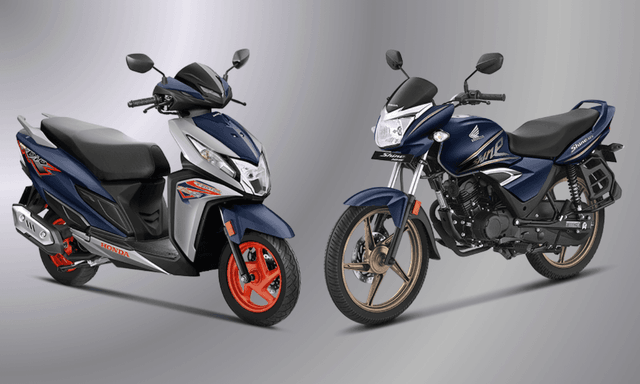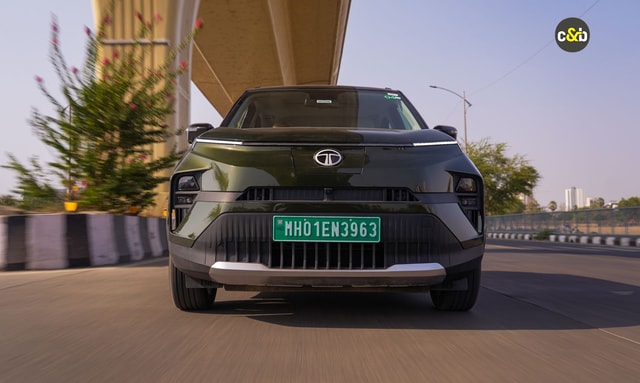How To Buy The Right Tyre For Your Car

- What are the weather conditions in which you drive?
- You drive on which road type?
- What is the driving style you prefer?
Let's dive in!
What are the weather conditions in which you drive?
Tires are made for various weather conditions. Some tires are all-weather tires, whereas others are made especially for ice, snow, rain, or heat. The weather affects your tire performance, and you need to ensure that your tires are suitable for the weather you mostly drive-in.

Photo Credit: www.draytonvalleyford.com
Warm Weather
There are summer tires or all-season tires that you can use when the temperature is high or above freezing temperature.
Seasonal Climate
For all seasons, get tires that suit every climate:
- All season tires
- Winter tires
- Summer tires
Winter Weather
When the temperature is too cold, and there is snow or ice, that is when you require a set of winter tires. All-season tires would not be a good fit in such a weather condition, and you should get winter tires for optimum performance and safety.
You drive on which road type?
You require different tires for different types of roads. For driving mainly in the city, you should:
-
Get tires that have optimal braking on both wet and dry roads.
-
Get tires with a low rolling resistance to help you save fuel and be more economical.
-
Get tires that have longevity because a lot of braking takes place in city driving. Stopping and then continuing the drive numerous times takes a toll on the tires.

Photo Credit: openroadautogroup.com
Highway Driving
For driving on the highway, you should:
- Get tires that provide optimal braking on both wet and dry roads. High speeds require maximum safety, and such tires are needed for highway driving.
- Get tires that are comfortable for long trips and offer less noise level and vibration.
- Get tires with excellent stability and grip.
Unpaved Roads
It would be best to get tires that give you maximum off-road traction and durability for driving on unpaved roads.

The driving style that you have
It would be best if you bought tires that match your driving style. If you like to drive in comfort, you should get tires that specifically allow a smooth ride, create low noise on the drive and comfort on its specs. Generally speaking, lower speed rating touring tires (H, S, or T ratings at sidewall) provide more comfort than speed.
You should get tires that provide excellent steering precision and handling if you like the thrill. Such tires are often known as high-performance tires and have higher speed ratings.
Latest News
 car&bike Team | Feb 6, 2026Indian Motorcycle Parts Ways With PolarisAs America’s first motorcycle brand prepares to celebrate its 125th anniversary, Indian Motorcycle has parted ways with former parent Polaris to become an independent company.1 min read
car&bike Team | Feb 6, 2026Indian Motorcycle Parts Ways With PolarisAs America’s first motorcycle brand prepares to celebrate its 125th anniversary, Indian Motorcycle has parted ways with former parent Polaris to become an independent company.1 min read car&bike Team | Feb 6, 2026BMW F 450 GS Based Sportbike Spotted On TestThe upcoming supersport machine is expected share the same parallel-twin engine with the upcoming BMW F 450 GS.1 min read
car&bike Team | Feb 6, 2026BMW F 450 GS Based Sportbike Spotted On TestThe upcoming supersport machine is expected share the same parallel-twin engine with the upcoming BMW F 450 GS.1 min read car&bike Team | Feb 6, 2026Tata Sierra Bookings Cross 1 Lakh Mark; Production Ramped UpWith bookings now in six-digit territory, Tata Motors is moving ahead with a phased ramp-up in production, while working through supplier-related constraints.1 min read
car&bike Team | Feb 6, 2026Tata Sierra Bookings Cross 1 Lakh Mark; Production Ramped UpWith bookings now in six-digit territory, Tata Motors is moving ahead with a phased ramp-up in production, while working through supplier-related constraints.1 min read car&bike Team | Feb 6, 2026Mahindra To Set Up Its Biggest Automobile Plant In Nagpur; Production To Begin In 2028The new facility will support next-generation platforms from the brand and will be capable of manufacturing multiple powertrains including ICE, EV & future technologies1 min read
car&bike Team | Feb 6, 2026Mahindra To Set Up Its Biggest Automobile Plant In Nagpur; Production To Begin In 2028The new facility will support next-generation platforms from the brand and will be capable of manufacturing multiple powertrains including ICE, EV & future technologies1 min read Jaiveer Mehra | Feb 5, 2026Honda Dio 125 X-Edition, Shine 125 Limited Edition LaunchedBoth special editions get a variant-specific colour scheme and graphics.1 min read
Jaiveer Mehra | Feb 5, 2026Honda Dio 125 X-Edition, Shine 125 Limited Edition LaunchedBoth special editions get a variant-specific colour scheme and graphics.1 min read Seshan Vijayraghvan | Feb 5, 2026Tata Punch EV Facelift To Be Launched On February 20The electric version of Tata’s SUV-esque hatchback will be launched on February 20, 2026, and, like the petrol-powered version, it will receive a range of visual and feature upgrades.2 mins read
Seshan Vijayraghvan | Feb 5, 2026Tata Punch EV Facelift To Be Launched On February 20The electric version of Tata’s SUV-esque hatchback will be launched on February 20, 2026, and, like the petrol-powered version, it will receive a range of visual and feature upgrades.2 mins read
 Bilal Firfiray | Feb 4, 2026Volkswagen Tayron R-Line Review: Sensible Flagship For IndiaVolkswagen has introduced a made-in-India flagship SUV that offers space, comfort, performance, and German driving finesse in a practical three-row package. But is the Tayron R-Line good enough?6 mins read
Bilal Firfiray | Feb 4, 2026Volkswagen Tayron R-Line Review: Sensible Flagship For IndiaVolkswagen has introduced a made-in-India flagship SUV that offers space, comfort, performance, and German driving finesse in a practical three-row package. But is the Tayron R-Line good enough?6 mins read Preetam Bora | Feb 2, 2026TVS NTorq 150 Road Test Review: Bigger, Better & More Efficient!We test the new TVS NTorq 150 out in the real world to get a sense of what it offers in terms of performance, dynamics and fuel economy.7 mins read
Preetam Bora | Feb 2, 2026TVS NTorq 150 Road Test Review: Bigger, Better & More Efficient!We test the new TVS NTorq 150 out in the real world to get a sense of what it offers in terms of performance, dynamics and fuel economy.7 mins read Bilal Firfiray | Jan 21, 2026Tata Punch Facelift Review: New Turbo Engine; Same Old SoulWith the update, the Tata Punch facelift retains its character of being a healthy runabout, which is perfect for Indian roads. But have these changes made it any better?7 mins read
Bilal Firfiray | Jan 21, 2026Tata Punch Facelift Review: New Turbo Engine; Same Old SoulWith the update, the Tata Punch facelift retains its character of being a healthy runabout, which is perfect for Indian roads. But have these changes made it any better?7 mins read Amaan Ahmed | Jan 17, 2026Bajaj Chetak C25 First Ride Review: Basic, Likeable E-Scooter For First-Time RidersThe Chetak C25, in quite a few ways, is poles apart from the larger and more powerful 30 and 35 Series models, but in its mannerisms, it is very much a Chetak.8 mins read
Amaan Ahmed | Jan 17, 2026Bajaj Chetak C25 First Ride Review: Basic, Likeable E-Scooter For First-Time RidersThe Chetak C25, in quite a few ways, is poles apart from the larger and more powerful 30 and 35 Series models, but in its mannerisms, it is very much a Chetak.8 mins read Bilal Firfiray | Jan 9, 2026Toyota Urban Cruiser Hyryder: 10,000 km Long-Term ReviewAfter spending over three months and 10,000 km with the Toyota Urban Cruiser Hyryder Hybrid, we were impressed by its real-world mileage, seamless hybrid, practical comfort, and Toyota reliability. Is it the best C-SUV then?5 mins read
Bilal Firfiray | Jan 9, 2026Toyota Urban Cruiser Hyryder: 10,000 km Long-Term ReviewAfter spending over three months and 10,000 km with the Toyota Urban Cruiser Hyryder Hybrid, we were impressed by its real-world mileage, seamless hybrid, practical comfort, and Toyota reliability. Is it the best C-SUV then?5 mins read




























































































































